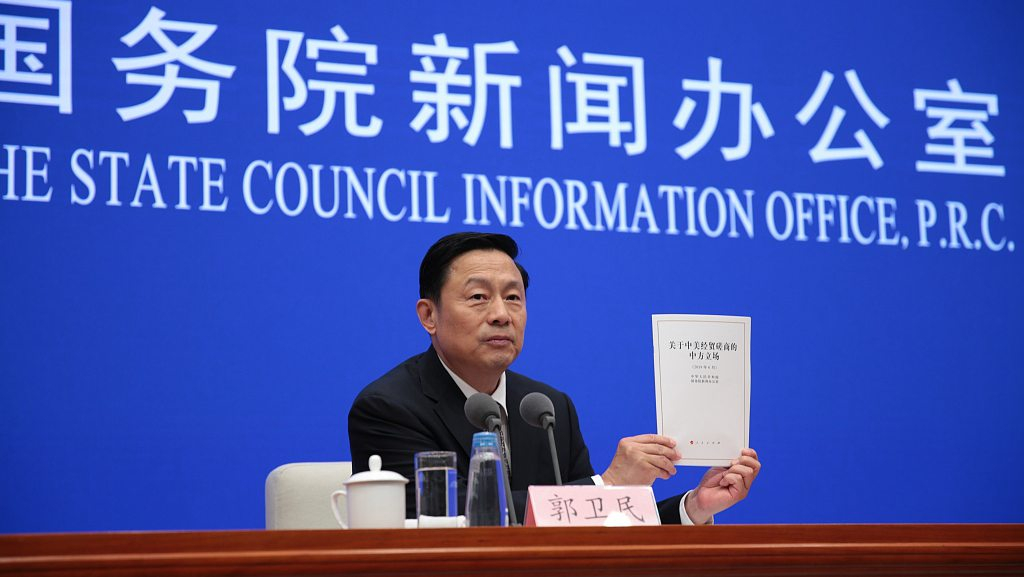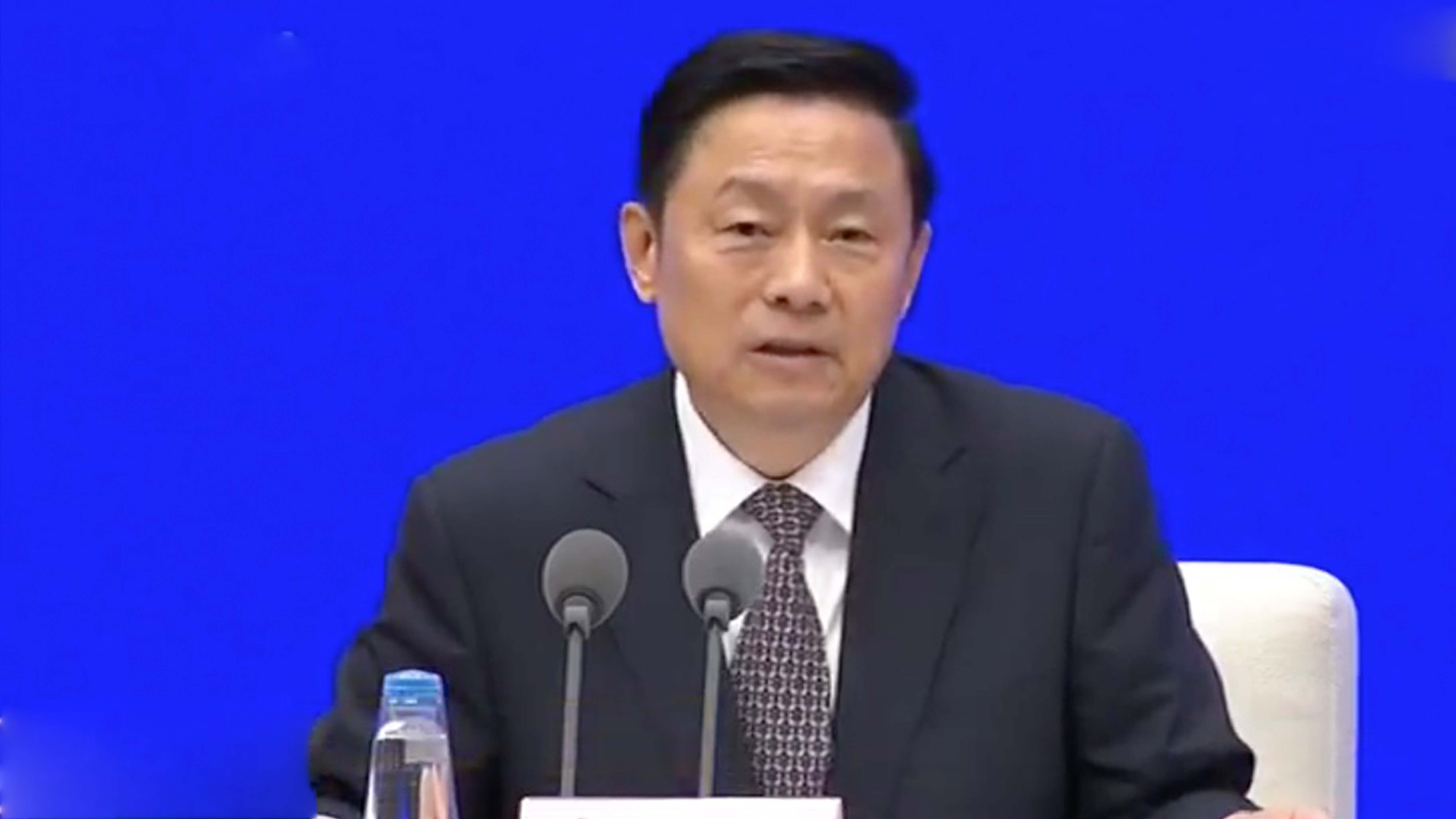
Domestic
12:53, 02-Jun-2019
Highlights: White paper on China's stance on China-U.S. economic, trade talks
Updated
14:59, 02-Jun-2019
CGTN

The State Council Information Office (SCIO) held a press conference on Sunday and issued a white paper to provide a comprehensive picture of the China-U.S. economic and trade consultations and present China's policy position on these consultations.
The white paper is titled “China's Position on the China-U.S. Economic and Trade Consultations.”
Chinese Vice Minister of Commerce and Deputy China International Trade Representative Wang Shouwen and Vice Head of the SCIO Guo Weimin attended the press conference and answered questions from the media.
01:42

The release of the white paper is of vital importance as bilateral trade frictions have raised high awareness in the international community, Guo Weimin told CGTN.
Here are the highlights of the white paper:
China does not want a trade war but is not afraid to fight one
A mutually beneficial relationship with strong complementarity and interlinked interests has been forged between China and the U.S., benefiting not only the two countries but also the entire world, according to the white paper.
China's position has been consistent and clear - that cooperation serves the interests of the two countries, that conflict can only hurt both, and that cooperation is the only right choice for both sides, it said.
China will not compromise on major issues of principle. China does not want a trade war, but it is not afraid of one, and it will fight one if necessary. China's position on this has never changed, the white paper pointed out.
U.S.-imposed tariffs benefit no one
The U.S. administration has imposed additional tariffs on Chinese goods exported to the U.S., impeding two-way trade and investment cooperation and undermining market confidence and economic stability in the two countries and globally, according to the white paper.
As China is forced to impose tariffs as a countermeasure to U.S. tariff hikes, U.S. exports to China have dropped for eight months in a row. The white paper states that the uncertainty brought by U.S.-China economic and trade frictions made companies in both countries more hesitant about investing.
Read more:
U.S. accusation of China IP theft unfounded
Accusing China of stealing intellectual property to support its development is an unfounded fabrication. China has paid great attention to Intellectual Property Rights (IPR) protection and established a legal system for IPR protection that suits the Chinese reality and conforms to international rules, said the white paper.
The number of China's patent applications ranked first in the world for eight consecutive years since 2010. Historical records confirm that China's achievements in scientific and technological innovation are not something we stole or forcibly took from others; they were earned through self-reliance and hard work, the white paper said.
Read more:
U.S. bears responsibility for trade talks setback
The U.S. government's accusation of Chinese backtracking is groundless, according to the white paper, noting that it is common practice for both sides to make new proposals for adjustments to the text and language in ongoing consultations.
In the previous more than ten rounds of negotiations, the U.S. administration kept changing its demands. It is reckless to accuse China of "backtracking" while the talks are still underway.
China committed to credible consultations
The Chinese government rejects the idea that threats of a trade war and continuous tariff hikes can ever help resolve trade and economic issues, said the white paper.
Consultations should be based on mutual respect, equality and mutual benefit, it said. Cooperation is the only right choice for China and the U.S. and win-win is the only path to a better future.
The two countries should push forward consultations based on good faith and credibility in a bid to address issues, narrow differences, expand common interests, and jointly safeguard global economic stability and development, it said.
Read more:
(With input from Xinhua)

SITEMAP
Copyright © 2018 CGTN. Beijing ICP prepared NO.16065310-3
Copyright © 2018 CGTN. Beijing ICP prepared NO.16065310-3